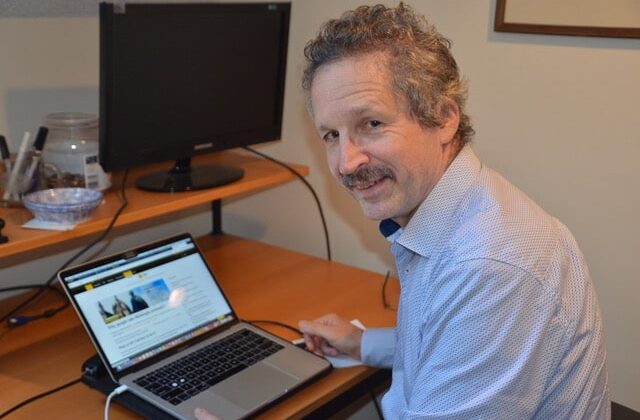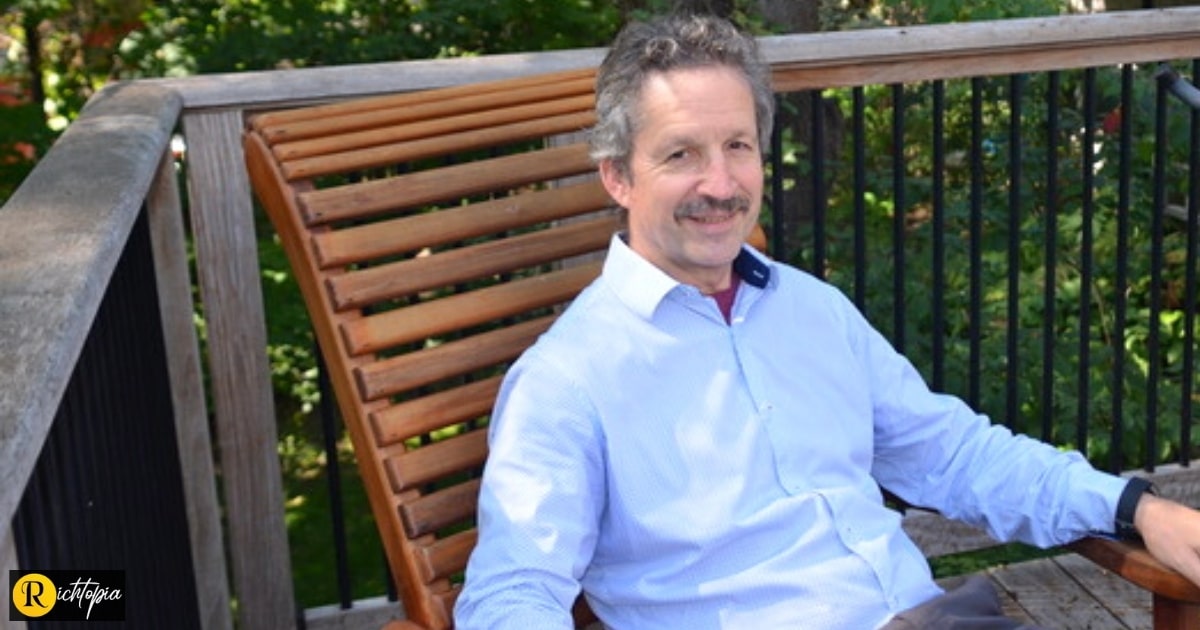Jim has made sales in the billions of dollars as a business person and spent millions of his own money on rescuing more than 300 Syrian refugees as a philanthropist.
In this interview, Canadian entrepreneur and philanthropist Jim Estill shares his experiences and thoughts on mentorship.
Jim, in his own words:
I started my first company from the trunk of my car. I was an engineering student. I wanted to design a circuit board and needed a computer. I got a better deal if I bought two. So I bought two and sold one, then someone else wanted one, so I bought another two then a printer, then some memory, and so forth. Eventually, I was buying and selling computer products. We eventually grew our business to $2 billion in sales.
In the computer business, I saw many new companies and technologies. I invested, advised and mentored many of those startups (over 150). The most famous one I did was BlackBerry, where I sat on the board since before they were public for the first 13 years, ending in 2010. Through side-investing, I have been involved in the sale of over 25 companies, to companies like Blackberry (Slipstream), Google (PostRank), Infospace (Inex), Secure Computing (Border Networks), and Heico (Connect Tech), to name a few.
I retired but kept doing some angel investing and board work. I sat on the board of Danby Appliances. The CEO resigned. I said, “I could be CEO for a while”. I found I enjoyed running a company again and decided that would be my next decade gig. So I unretired. Then the ownership group said they wanted me to sell it, so I asked how much they wanted to sell it for – they told me and I said “OK” and bought the company.
Danby Appliances sells about 2,000,000 appliances like fridges, freezers, wine coolers, and similar products per year. We also have a robust air conditioner (window, portable) part of our business (the commonality is they also use compressors). We do about $400,000,000 in sales – 98% in North America (including Mexico).
This mentoring series of interviews is brought to you in partnership with National Mentoring Day, taking place on the 27th of October each year to recognise and celebrate the benefits of mentorship.
Richtopia is shining a light on the invaluable contribution that mentoring makes.
Jim Estill: Full Interview

1. How has mentorship helped you in business and life?
Quite simply, I would not have had the success (or luck) I have had in my life had I not had mentors.
In many cases, the people I chose to mentor me, did not even know they were my mentors. They just knew I was taking them for lunch, keeping in touch with them and asking lots of questions.
At the same time, I tried hard to add value to those mentors. So anytime I could, I would send business their way, or articles of interest or help in any way I could.
2. Why is it important for people to pay attention to mentoring?
Mentoring reduces failure. It is much cheaper to learn from someone than to have to make the mistake.
3. In which ways can organisations use the process of mentoring to advance their workforce and society more effectively?
We use mentoring as a way to nurture new staff to help them feel comfortable and to bring them up to speed. By asking this question though, it prompts me to consider looking at adding a mentoring program for other high potential staff.
4. What is your definition of success?
Success for me is “helping as many people as possible achieve their greatest potential”. For me, I choose to do that through business.
5. If you had the chance to travel back in time and have two mentors from history, who would they be? And what would you want to learn from them?
Davinci has always been a hero. I am impressed by his inventiveness and wide breadth. The other would be Ben Franklin. I think his views on self-improvement, especially at that time, would be interesting.
At the same time, the world tends to put people up on a pedestal. All of us are human, hence flawed. So idolizing someone is not good. Learning from the good characteristics is.
6. What steps do you believe people could take to become good mentors?
Work on yourself. Be a constant learner. Interestingly the best way to learn is to teach. Part of mentoring is teaching.
7. How do mentees best leverage the opportunities of mentoring?
Use the experience the mentor has and not think the mentor is “for everything.” I often have different mentors for different expertises and do not ask my Marketing mentor about Production issues.
8. What excites you the most about mentoring in the 21st century?
Change is constant. It seems faster and faster. Mentorship is more important than ever. We also have an electronic/connection world which can bridge the distance between people.
9. If you could share only one of your favourite quotes, which would it be? And why did you pick that one?
Fail Often, Fail Fast, Fail Cheap.
I like it because failing only happens if people try. If you fail, it means you have tried. People who have no failures have not tried.
10. We know mentoring is often beneficial; however, what are the harmful or risky types of mentoring people should know about too?
All mentoring needs to be filtered. Just because a mentor suggests, it does not mean it works now. Advice and suggestions need to be logically challenged.
11. What experiences of being a mentor or mentee could you share regarding your company Danby?
With COVID, many people are working remotely. We were having difficulty getting people assimilated and up the speed. We have a formal onboarding program and training, but we needed more than that.
Assigning a seasoned mentor to help newer people helped. Interestingly, being “chosen” to be a mentor also inspired the mentor. We all like feeling special, and we all like to contribute.
12. How can people go about finding the right mentors?
It is simple. Choose someone who has the success you wish to have. For example – if you want to be healthy when you are 80 – choose an 80-year-old healthy person.
13. Here’s one for a laugh: If you were hypothetically abducted by aliens and they made you their mentor, what would you start with first?
I always suggest “start with the end in mind”. I would need the aliens to define what they want. A mentors job is to help the mentee succeed – not to try to shape them the way the mentor wants.
14. Please summarise your mentoring experience in three words.
Always keep learning.
15. How do you think mentoring can help with mental health issues?
Mentoring is partly about human connection. Human connection helps mental health.
16. Last, what is the one thing you want everyone to know about Jim Estill?
I try.
![Mentoring Series: Jim Estill (Full Interview) [ep.1]](https://richtopia.com/wp-content/uploads/2020/07/divider.png)
Have your say on #NationalMentoringDay
![Mentoring Series: Jim Estill (Full Interview) [ep.1]](https://richtopia.com/wp-content/uploads/2020/07/divider.png)
Disclaimer: Richtopia is not an intermediary, broker/dealer, advisor, or exchange and does not provide services as such. The opinions about mentoring in this post are those of the interviewee and for informational purposes. Please conduct independent research when making decisions and do not rely on the views published on this page.






![Mentoring Series: Jim Estill (Full Interview) [ep.1] Richtopia newsletter bg](https://richtopia.com/wp-content/uploads/2020/11/email-subscriptions-background.webp)